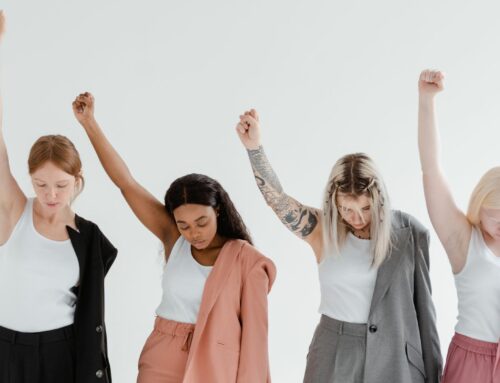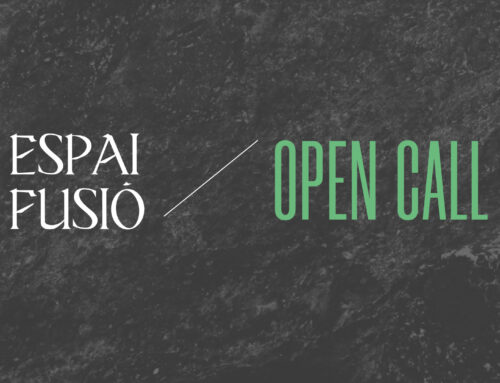So, if so many of us are aware and involved, why does adopting new sustainable habits seem so difficult? Is it that it involves too many changes? Is it that we must give up on a lot of comfort? Let’s try to understand why it feels so challenging and sometimes discouraging to live sustainably.
Sustainability is a vast topic
It might be daunting to change our habits for more sustainable ones when it already is not very clear what the best option is. So, paper bag or plastic bag? Paper, right? Paper is compostable and recyclable, but it has a higher carbon footprint to produce than plastic. Eating local or vegetarian? What is the impact of transport on the carbon footprint of an avocado, versus the carbon footprint of eating local meat?
Making conscious decisions about what to buy (Or not to buy) takes a bit more thinking. To understand a specific topic and make informed decision, try and learn about it, test a first option and don´t be afraid to change again later.
Here are some simple concepts that can already help you to adopt new sustainable habits:
- Always think zero waste for the things around you, consider the 5 Rs: Refuse, Reuse, Reduce, Recycle, Rot.
-
- Plastic bag or paper bag is the wrong question: Always try to reuse a bag with a long lifespan, as many times as possible,
- Should I buy new or recycled clothes? Try and see if you really need this piece of clothes, and if you do, check if you can borrow it from someone / buy it second hand.
- The transport has only a small impact on our food carbon footprint. The biggest impact on your diet is whether you eat a plant-based diet or meat-based diet. It is of course very important to support local, small businesses, though it won´t impact your carbon footprint that much.
We all have cognitive bias
The way our brain works impacts our behaviors and choices and, in the end, whether we behave sustainability. There are 3 important bias we can consider:
- Urge for immediate gratification
It is difficult to adopt sustainable behaviors because they do not lead to immediate gratification. In a society where as soon as you post something, you receive “likes” and everything is so accessible (Hello Glovo), it is difficult to understand that we must act today and refuse things in order to avoid major problems in the future. Focusing on delayed gratification is difficult but certainly key to adopt sustainable behaviors.
- Confirmation bias
Confirmation bias “is the tendency to search for, interpret, favor, and recall information in a way that confirms or supports one’s prior beliefs or values”. Consider, in a nutshell that no one likes to be told what they do is wrong. Not you, not me. Our brains are wired to prioritize information that makes us feel right. We will select and store more information that confirms our doings and values versus information that tells us we are wrong. When it comes to sustainability, we all could do something better and it is hard to accept that “Yes, I am using too much plastic, and yes, I am responsible for what I buy, I can change that”.
- Diffusion of responsibility
Consider that we are 7.9 billion of people on the planet today (!). Ideally, we should ALL act towards a more sustainable world. “Diffusion of responsibility refers to the fact that as the number of bystanders increases, the personal responsibility that an individual bystander feels decreases” . As a single individual, it is very easy to think “what I do does not matter”. But if all of us feel responsible, the sum of individual actions would be huge. We therefore must fight this bias and start to feel responsible for what we do, regardless of what others decide to do themselves.
Individual actions impact is limited
This is true without a doubt. Of course, what each of us does is important because we all have an impact, because what we do can influence people around us, and because what we chose to buy or not to buy, collectively, sends a message to companies and governments. However, it is also clear that individuals alone won´t make the planet’s temperature stay within 2 degrees increase.
What can we do about that then? How to change the system itself? There is no one right answer to these questions: Voting and demonstrating are of course important. And unless the CEO of Repsol is your best friend, it is hard to impact big corporations and national governments. But we can act locally, in different ways: There are many initiatives in Barcelona, and beyond, where you can engage:
- Get involved in zero waste Barcelona initiative: https://www.decidim.barcelona/assemblies/CompromisBarcelonaPlasticZero?locale=es
- Sign petitions for subjects that matter to you: https://es.greenpeace.org/es/que-puedes-hacer-tu/peticiones/
- Demonstrate: https://fridaysforfuture.org/
- Get involved and learn about sustainability initiatives in Barcelona: https://ajuntament.barcelona.cat/lafabricadelsol/es
- Read the Barcelona for climate commitment and find other areas of interest: https://www.barcelona.cat/barcelona-pel-clima/sites/default/files/documents/climate_plan_maig.pdf
Changing all of our habits from one day to the other is not easy. Being conscious about our own limitations (Knowledge and bias) is the first step to living more consciously and sustainably. One change at a time, we can feel empowered to change things around us.
Start a Zero Waste life with a 10% discount at WeZero with this code: wemobzero




